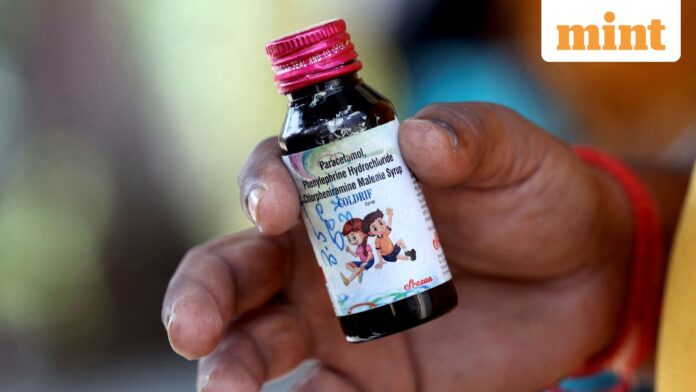Drug authorities in states such as Delhi, Himachal Pradesh, and Uttarakhand have already issued warning closure notices to firms that don’t comply with good manufacturing practices (GMP), requiring them to upgrade by the end of the year.
The move ends a one-year grace period granted to micro, small, and medium enterprises (MSMEs) to comply with new norms, and comes amid renewed concerns over drug safety after a series of deaths among children following contaminated cough syrup consumption.
Mint decodes the regulator’s order and why these companies struggle to comply with industry standards.
What’s the drug regulator’s directive?
DCGI Rajeev Raghuvanshi, in a letter dated 7 November, directed state authorities to conduct inspections of manufacturing units that had applied for a one-year extension to implement the revised Schedule M, which sets GMP standards.
Authorities will conduct checks to ensure these units have upgraded their facilities and practices in keeping with the new guidelines, which take effect from 1 January, 2026.
For MSMEs that did not apply for an extension, the regulator has directed immediate action if they are found to be non-compliant. MSMEs with an annual turnover of less than ₹250 crore have been given an optional extension until the end of this year. However, officials have said that few firms applied for an extension.
What is Schedule M?
Schedule M sets mandatory guidelines for good manufacturing practices (GMP) for pharmaceuticals in India, outlined in the Drugs and Cosmetics Act.
In December 2023, the health ministry upgraded this framework to align with global standards such as WHO GMP-compliant standards. The move followed cough-syrup linked deaths of children in The Gambia and Uzbekistan caused by Indian drugs, raising serious concerns over the country’s drug safety issues and manufacturing conditions.
While the country’s larger firms had to comply early, the government granted a conditional extension for MSMEs to give them time to upgrade, keeping in mind the economic challenges involved. The revised Schedule M was implemented for large manufacturers from 28 June, 2024.
Why is the government tightening the screws now?
The government’s move comes as the December 2025 compliance deadline approaches, and amid the uproar over the cough syrup deaths in October.
The World Health Organisation (WHO) flagged three brands—Coldrif, Respifresh TR and ReLife—made by three Indian manufacturers Sresan Pharmaceutical, Rednex Pharmaceuticals, and Shape Pharma. The cough syrups contained toxic levels of diethylene glycol (DEG), an industrial solvent which can lead to serious injury or death even in small quantities, especially among children.
An investigation into Sresan Pharmaceuticals’ facility in Tamil Nadu revealed staggering violations, including the absence of pest control and cleaning procedures, rusty equipment, the use of non-pharmaceutical grade propylene glycol (used as a solvent and stabiliser), and more. Despite this, the manufacturer managed to retain its manufacturing licence since 2011, revealing glaring lapses in regulation.
This isn’t the first time Indian-made cough syrups have led to deaths in children. Earlier, cough syrups exported to countries like The Gambia, and Uzbekistan caused deaths in 2023. Other parts of India like Jammu have also seen a spate of deaths from contaminated cough syrups.
What do the new guidelines require?
Manufacturers are expected to meet global standards, including infrastructural and operational changes to improve safety and checks. The upgrades would include implementing a pharma quality system for managing quality across all aspects of manufacturing, a computerized storage system for data, and upgraded equipment that meets global quality standards and validation.
It also includes full traceability of supply chain and using qualified vendors as well as mandatory testing of finished products and raw materials.
The manufacturing premises also need to meet international standards of sanitation, along with specific provisions for sterilization and safe storage of drugs.
Why are MSMEs struggling to comply?
India has over 10,000 pharmaceutical units, nearly 80% of which are MSMEs with turnover below ₹250 crore. Many of these firms are unprepared for setting up a pharma quality system, which involves an overhaul of how the company operates, requiring trained personnel, regular reviews and tools and systems such as expensive, good practice-compliant software.
The new rules also require major changes in facility layout, including requirements of air quality monitoring tools, microbiology lab, investing in HVAC (heating, ventilation, and air conditioning) systems, critical for maintaining sterile environments.
The capital required for these upgrades can’t be met through internal cash reserves, and external funding access is difficult for most players, Harish K. Jain, president of the Federation of Pharmaceutical Entrepreneurs had said in July 2025.
Industry representatives had previously sought an extension until December 2026. However, the health ministry offered an extension until 31 December 2025 for those who applied with an upgraded plan.
drug regulator probe on cough syrup,good manufacturing practices,MSME drugmakers,Schedule M in drug industry,cough syrup deaths,Indian drug companie,pharma companies India,India pharma GMP crackdown,DCGI Schedule M directive,good manufacturing practices India,MSME pharma compliance,Indian drug quality standards,cough syrup deaths India,Schedule M pharma guidelines,WHO GMP India,pharma regulatory reform India,drug manufacturing inspection India,Pharma Industry,pharmaceutical players,contaminated cough syrup
#Mint #Explainer #drug #regulator #cracking #small #mediumsized #pharma #companies

